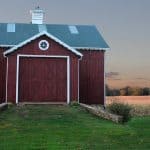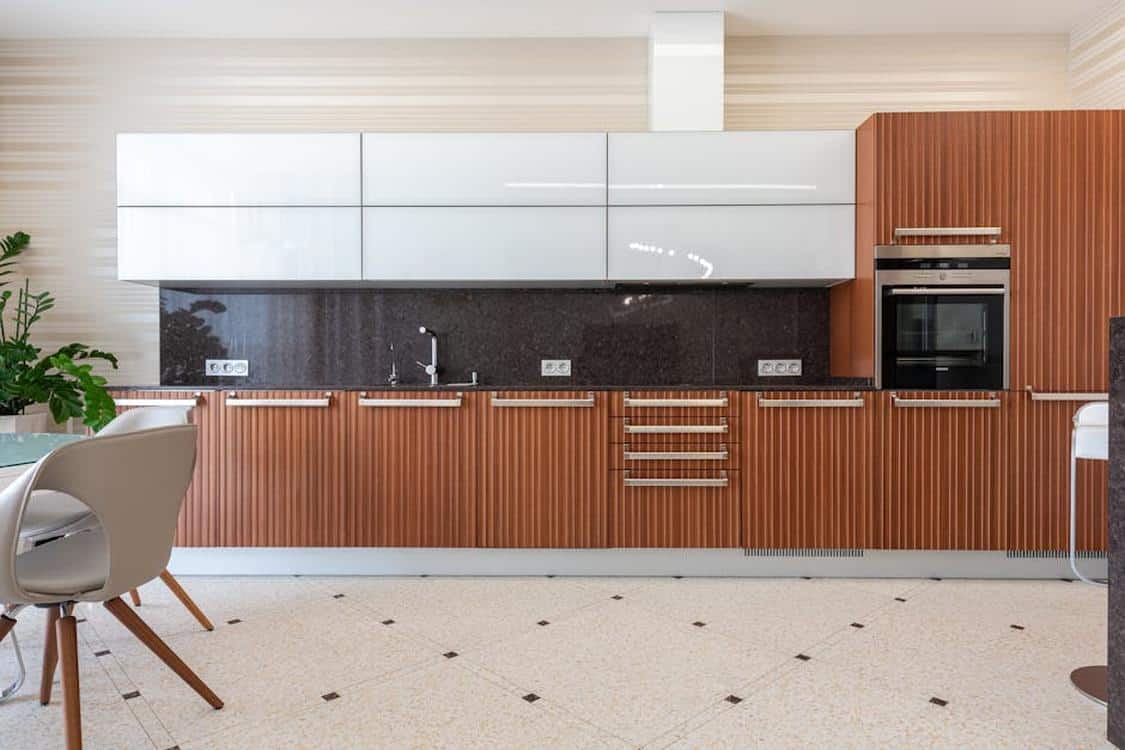
Converting Barns to Homes: Georgia’s Unique Properties
January 10, 2025
How to Choose the Right Dumpster Rental for Your Project
February 10, 2025Garage floor coatings are a great way to protect your concrete and update your space. It is important to understand how different options compare before deciding which is right for you.
DIY kits can be cheap upfront, but the costs of errors and redoing the work can quickly add up. This is why choosing a professional service is worth the investment.
Epoxy
Epoxy is the most durable of all garage floor coating options. It’s a two-part mixture of resin and hardener that chemically reacts with concrete to form an extremely tough, long-lasting surface. Epoxy can be applied to any concrete floor and is suitable for high-traffic areas, so go here to explore durable garage floor options. It offers the best resistance to chemicals, including car fluids like oil, antifreeze, and gasoline. Epoxy also resists staining and is easy to clean, making it ideal for busy garages that see a lot of activity.
One of the main differences between professional and DIY epoxy flooring is how the original concrete floor is prepared for the coating to adhere properly. A professional team uses a machine called a diamond grinder to remove the top layer of smooth, finished, or painted concrete, which creates a porous surface ready for the epoxy layer. This process is typically faster and more effective than sanding or using a shot-blasting method.
Another difference is the thickness of the final epoxy layer. Professional teams use a minimum of 15 to 30 mils, which is three to six times thicker than the epoxy paint sold in a do-it-yourself kit. The thickness of the epoxy is important because it protects the floor from stains, scratches, and dents that can occur when driving vehicles over it.
In addition to providing a sturdy layer of protection, epoxy coatings add value to your home and make it easier to sell if you ever decide to move. Potential buyers are often willing to pay more for a home with a shiny, professionally installed floor coating.
If you’re interested in epoxy, it’s crucial to consult an expert installer before beginning the project. If you try to install the epoxy yourself, it can result in a floor that’s uneven, has holes or stains, and doesn’t offer the proper level of durability. Then, you’ll need to spend money on touch-ups or a full redo sooner than you would with a professional installation. This is why it’s worth the investment to hire a team of professionals that understands and has experience with this highly technical process.
Polyurea
The popularity of epoxy coatings has taken a back seat to the more durable, versatile, and customizable polyurea flooring systems. Polyurea is 4x stronger, 98% more flexible, and resists everything from chemical solvents to groundwater, making it the ideal material for a garage floor. Its superior durability, lasting up to 20 years with minimal maintenance compared to epoxy’s 10-15 years, is due to its molecular structure that shields concrete surfaces from impacts and abrasion while preventing moisture intrusion.
Polyurea floor coatings can be applied in temperatures as hot as 140°F and as cold as -30°F, allowing for year-round treatment. They are also highly resistant to the damage and cracking caused by water seepage and ice dams, which is common in areas with extreme weather. This makes a polyurea floor a great option for both residential and commercial garages in our area.
A polyurea floor is much easier to clean and maintain than epoxy, as it can withstand oils and other chemicals commonly found in garages and can resist stains such as grease, wine, and coffee. In addition, it is not as prone to yellowing as epoxy, and is also less brittle than a concrete surface.
Another benefit of polyurea is that it is environmentally friendly. It is made of 100% solids and contains no volatile organic compounds, which makes it a safer and more sustainable solution than epoxy flooring systems. This is especially important in a garage where a lot of automotive and lawn chemicals are stored.
While polyurea is a highly desirable option for many, it does have a few drawbacks that should be considered. While it is hardworking and durable, it can be difficult to work with due to its quick drying time. This can lead to mistakes if the installer isn’t careful. Polyaspartic, on the other hand, is more forgiving to installation workers because it takes a little longer to cure.
Webfoot uses an aromatic polyurea basecoat with a polyaspartic aliphatic topcoat, which gives it all the hardworking benefits of an aromatic polyurea while offering the UV stability and high-gloss aesthetic of an aliphatic coating. The result is a hardworking garage floor that looks beautiful and will stand up to the heavy use most homeowners put their garages through.
Polyaspartic
As a professional garage floor coating option, polyaspartic offers more durability than epoxy, and it can be used in a variety of situations. It also offers a better color choice for homeowners. These factors can make it an excellent garage flooring option for St Louis residents.
Polyaspartic coatings can be applied in a much wider range of temperatures than epoxy coatings. This flexibility can reduce the time needed for application, which means that your garage can be back in use more quickly than with other options. This versatility allows a garage floor to be upgraded during the winter months, for example, as well as in warmer weather.
Epoxy floor coatings are more brittle than polyaspartic, meaning that they have less elasticity and can be more damaged by impact or thermal fluctuations. Polyaspartic, however, has 98-100% more elasticity than epoxy, which makes it more durable and able to handle the stresses of your vehicle or work station.
Another advantage of polyaspartic is that it doesn’t yellow or fade over time like epoxy. This is a common problem with epoxy, which can be unsightly and ruin the look of your garage floor. Polyaspartic is also colorfast, so it won’t fade or discolor even when regularly exposed to UV rays.
Polyaspartic is more expensive than epoxy, but the added benefits make it worth it for homeowners and business owners looking for a high-quality concrete floor coating that will last longer than other options. It also offers more flexibility than other coatings, which can reduce the amount of wear and tear the floor experiences.
While a garage floor coating kit may seem to be an inexpensive way to upgrade your garage floor, they often have a limited number of colors and don’t offer the same aesthetics as a professionally installed polyurea or epoxy floor. In addition, many of these kits aren’t weighted properly for vertical surfaces such as walls or stairs, so they run off the wall and drip down the garage ceiling when it dries.
Lastly, most of these low-cost kits require you to mix the two components together, which can be difficult for most people to do correctly. A professional installer can ensure the right ratio is used for the best results.
Garage Floor Tiles

One of the most common garage floor coating options is floor mats. They’re inexpensive, easy to clean and come in a range of colors. However, they’re not durable and can trap dirt or moisture underneath them. Additionally, they can bunch up or shift under a car, creating trip hazards.
Another option for garage floors is floor paint. Unlike floor epoxy, it’s designed to cover up cracks and pitting in the concrete rather than protect it. It’s also relatively affordable and can be easily applied using a paintbrush. However, it’s not as durable as other coatings and will require frequent touch-ups.
Epoxy is a highly durable garage floor coating that can last the lifetime of your vehicle. It’s also resistant to water, oil and chemicals commonly found in a garage space. It’s not the best choice for a DIY project, however, as it requires extensive surface preparation to ensure a successful application.
Compared to epoxy, urethane is an economical floor coating that’s easy to apply and can be purchased in a variety of colors. It’s not as durable, however, and may chip or peel over time.
If you’re looking for a high-end garage flooring solution, consider porcelain tiles. These tiles are baked at extremely high temperatures to create an incredibly dense and durable material that’s scratch-, chemical- and stain-resistant. They’re also available in a wide array of colors and can be customized with edge trim and anti-fatigue shock towers.
A clear concrete sealer is a cheap option that’s easy to apply and works well in some situations. It’s not as durable as other coatings, though, and it won’t hide blemishes that were made in the concrete before sealing.
If you’re looking for a durable and aesthetically pleasing garage floor coating, a polyaspartic coating is the way to go. It’s slip-resistant and non-porous, making it easy to wipe clean and stain-resistant. It can also be stained in a wide variety of colors and can be installed by a professional. It’s not the best choice for DIY applications, however, as it requires extensive surface preparation and can be difficult to apply properly.


